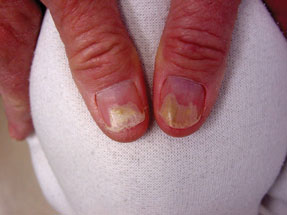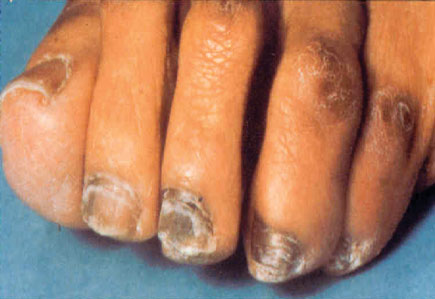Warnings about topical antiseptics, nuclear stress test agents
This regulatory update covers label and packaging changes to over-the-counter topical antiseptic products due to infection risk and approval of the first generic versions of rabeprazole sodium for gastroesophageal reflux disease.
Recalls, warnings and label changes
Label and packaging changes to over-the-counter topical antiseptic products for preoperative or preinjection skin preparation, due to reports of infections. The FDA is requesting that the products be packaged in single-use containers and labeled as either sterile or non-sterile. Clinicians should not dilute the products and should consider them as a possible source when investigating postoperative or postinjection infections.

A label change on regadenoson (Lexiscan) and adenosine (Adenoscan) regarding the rare but serious risk of heart attack and death. The label now recommends avoiding use of these drugs in patients with signs or symptoms of unstable angina or cardiovascular instability, and having cardiac resuscitation equipment and trained staff readily available before administering either drug.
A warning on clobazam (Onfi) about the risk of serious skin reactions. Stevens-Johnson syndrome (SJS) and toxic epidermal necrolysis (TEN) can occur at any time during treatment with clobazam, but the likelihood is greater during the first 8 weeks of treatment or when the drug is stopped and then restarted. Patients should be closely monitored for signs or symptoms of SJS/TEN, especially during the first 8 weeks or when reintroducing therapy. Clinicians should discontinue the drug at the first sign of rash.
A resumption of marketing for ponatinib (Iclusig) and new safety measures to address the risk of life-threatening blood clots and severe narrowing of blood vessels. The safety measures involve label changes to narrow the indication, provide additional warnings and precautions, revise recommendations about dosage and administration, and update the patient medication guide. A risk evaluation and mitigation strategy and postmarket investigations are also being required.
A recall of 20 lots of Abbott's FreeStyle and FreeStyle Lite blood glucose test strips because they may produce erroneously low blood glucose results when used with the FreeStyle or FreeStyle Flash blood glucose meters (manufactured in 2010 or before) as well as the OmniPod insulin management system.
A recall of 1 lot of Baxter International Inc.'s nitroglycerin in 5% dextrose injection due to particulate matter found in 1 vial. If infused, particulate matter could lead to potential venous and/or arterial thromboembolism or inflammation.
A recall of all lots of sterile products compounded by Nature's Pharmacy and Compounding Center (injectable drugs and eye drops, distributed in North Carolina) due to sterility assurance concerns during a recent FDA inspection.
A recall of Hospira's GemStar infusion system because the proximal and distal pressure sensor calibration can drift. A pump with this issue may shut down, not detect occlusions or issue false occlusion alarms. Potential risks include a delay or interruption in therapy or over-infusion.
A recall of Spacelabs Healthcare, Inc.'s anesthesia workstations and service kits because the bag-to-vent switch in CAS I/II Absorbers may fail due to loose fastening hardware in an absorber, which could impede the ability to provide ventilation in bag mode.
Approvals
The first generic versions of rabeprazole sodium (Aciphex) delayed-release tablets, used to treat gastroesophageal reflux disease in adults and adolescents.
The first generic versions of aduloxetine (Cymbalta) delayed-release capsules to treat depression and other conditions.
Simeprevir (Olysio), to treat chronic hepatitis C virus infection. A protease inhibitor, it is to be used as a component of combination antiviral treatment in adults with compensated liver disease, including cirrhosis. The drug label includes a recommendation to screen for the presence of that strain prior to therapy. The most common side effects were rash (including photosensitivity), pruritus and nausea.
Eslicarbazepine acetate (Aptiom) to treat seizures in adults. It is approved as an add-on medication to treat partial seizures associated with epilepsy. The most common side effects included dizziness, drowsiness, nausea, headache, double-vision, vomiting, fatigue and loss of coordination. Like other antiepileptic drugs, it may cause suicidal thoughts or actions in a very small number of people.
Miscellaneous
The FDA is asking clinicians to encourage patients to take acetaminophen safely this cold and flu season. Consumer resources are available on the FDA website.
Due to a disruption in supply of atropine (Atropen), atropine/pralidoxime chloride (DuoDote), morphine sulfate, pralidoxime chloride, and diazepam auto-injectors manufactured by Meridian Medical Technologies, the FDA announced in September 2013 that certain lots of DuoDote can be used for an additional year beyond the manufacturer's original labeled expiration date. The agency is continuing to assess whether further extension is possible and whether dates can be extended for additional lots. The potential use of the other products beyond their labeled expiration dates is also being examined. Products nearing or beyond their labeled expiration dates should be retained until further guidance is provided by the FDA.
The FDA recently removed the prescribing and dispensing restrictions on rosiglitazone-containing drugs (Avandia, Avandamet, Avandaryl) that were put in place in 2010, based on updated data that do not show an increased risk of heart attack with rosiglitazone compared to metformin or sulfonylureas. Although some scientific uncertainty about the cardiovascular safety of rosiglitazone still remains, concern is substantially reduced, the agency said.





